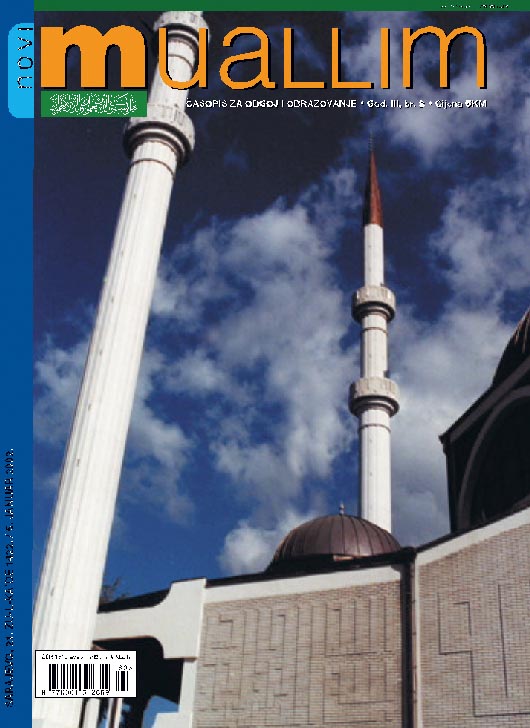THE MEANS OF UPBRINGING BY THE GOD'S MESSENGER A. S.
DOI:
https://doi.org/10.26340/muallim.v2i8.1411Abstract
The followers of Muhammad a.s. have for centuries been asking themselves, regardless of the place they lived in, how did the God's Messenger managed to completely transform the Arabs of his era in such a short period of time!? How did he manage to achieve the overall progress in all the spheres of human activity (political, social, military, moral, intellectual…)? In searching for answers to these questions, the Muslims want to make use of the means Allah's Messenger a.s. used, in upbringing their offspring, hoping to achieve at least similar results.This is even more important in today's hurried way of life, when a parent has less and less time for his child, and when the high and low of the upbringing are exhausted in a meager praise and a severe punishment, which leads to even greater alienation of children from parents and cooling of the relations between them. Browsing through the main collection of Hadith, which hand down the life of the last God's Messenger a.s. to, seemingly unimportant little details, we see that Muhammad a.s. used certain means in upbringing his Athab. The means of upbringing are divided, according to their goals, into directional, stimulating and preventing kind of means. It is fairly evident that Ibadath (salaat, fast, zakat, hajj), due to its constant presence in the life of a believer as well as die to the strong insistence of the God's Messenger a.s. on practicing it, had crucial impact on the correct upbringing of the Athabs.
In addition to Ibadath, the God's Messenger a.s. used the following means as well:
- Means of directing: advice, story telling, example giving, model creation, work.
- Means of stimulating: praise, promise, reward, competition.
- Means of preventing: supervision, redirecting, warning, request, reprimand, punishment.
Downloads
Published
How to Cite
Issue
Section
License
Naknada:
a. Časopis ne naplaćuje naknadu za obradu članaka (APC) i naknadu za podnošenje članaka.
Autori koji objavljuju u ovom časopisu pristaju na sljedeće uvijete:
- Autori zadržavaju autorska prava i pružaju časopisu pravo prvog objavljivanja, pri čemu će rad jednu godinu po objavljivanju biti podložan licenci Creative Commons imenovanje koja omogućuje drugima da dijele rad uz uvijet navođenja autorstva i izvornog objavljivanja u ovom časopisu.
- Autori mogu izraditi zasebne, ugovorne aranžmane za ne-ekskluzivnu distribuciju rada objavljenog u časopisu (npr. postavljanje u institucionalni repozitorij ili objavljivanje u knjizi), uz navođenje da je rad izvorno objavljen u ovom časopisu.


